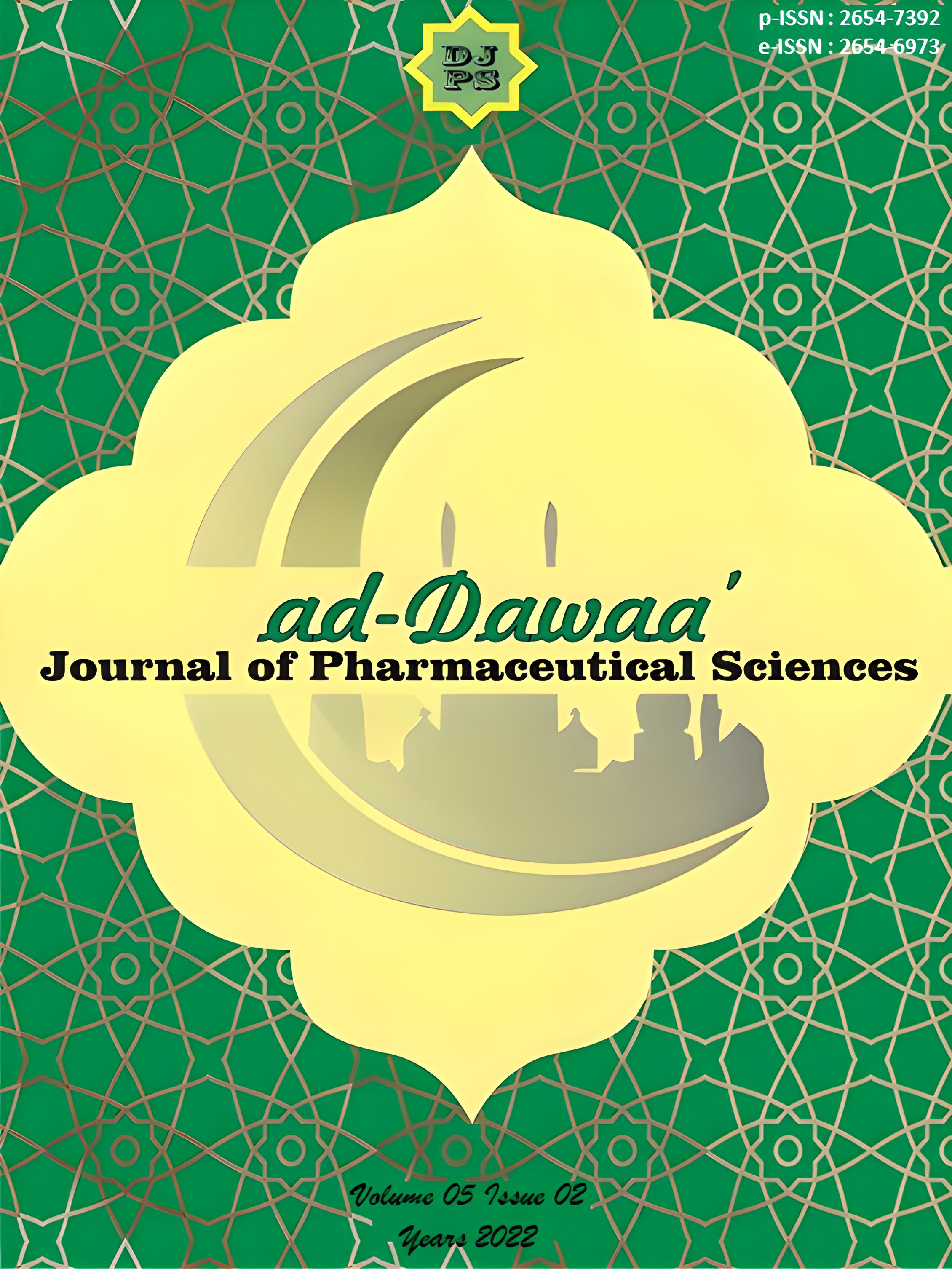HMG-CoA Reductase Inhibitory Activity Potential of Iota-, Kappa-, and Lambda-carrageenan: A Molecular Docking Approach
Abstract
HMG-CoA reductase is an essential enzyme responsible for the biosynthesis of cholesterol. Hyperactivity of HMG-CoA reductase will increase cholesterol production, leading to the elevation of blood cholesterol levels. Inhibition of HMG-CoA reductase is one way to block cholesterol biosynthesis to lower blood cholesterol levels. This study evaluated the inhibitory potential of iota-, kappa-, and lambda-carrageenan against HMG-CoA reductase. The study was undertaken by in silico method using a molecular docking approach via Autodock 4.2 assisted by ADT graphical user interface. HMG-CoA reductase co-crystal structure was used as the target, and iota-, kappa-, and lambda-carrageenan as the test ligands. The result revealed that iota- and lambda-carrageenan possess an excellent affinity to HMG-CoA reductase with the free binding energy of -12.44 and -11.87 kcal/mol and Ki value of 0.765 and 2.01 nM, respectively, which is found to be better than Simvastatin and the native ligand. The compounds' chemical properties influenced the molecules' molecular interactions affecting their affinity. The number of SO4 groups is assumed to affect the HMG-CoA reductase inhibitory activity of iota-, kappa-, and lambda-carrageenan.
KEYWORDS: iota-, kappa-, and lambda-carrageenan; HMG-CoA reductase; inhibitory activity; molecular docking
Downloads
Once an article was published in the journal, the author(s) are:
- granted to the journal right licensed under Creative Commons License Attribution that allows others to share the work with an acknowledgement of the work's authorship.
- permitted to publish their work online in third parties as it can lead to wider dissemination of the work.
- continue to be the copyright owner and allow the journal to publish the article with the CC BY-SA license
- receiving a DOI (Digital Object Identifier) of the work.


1.png)